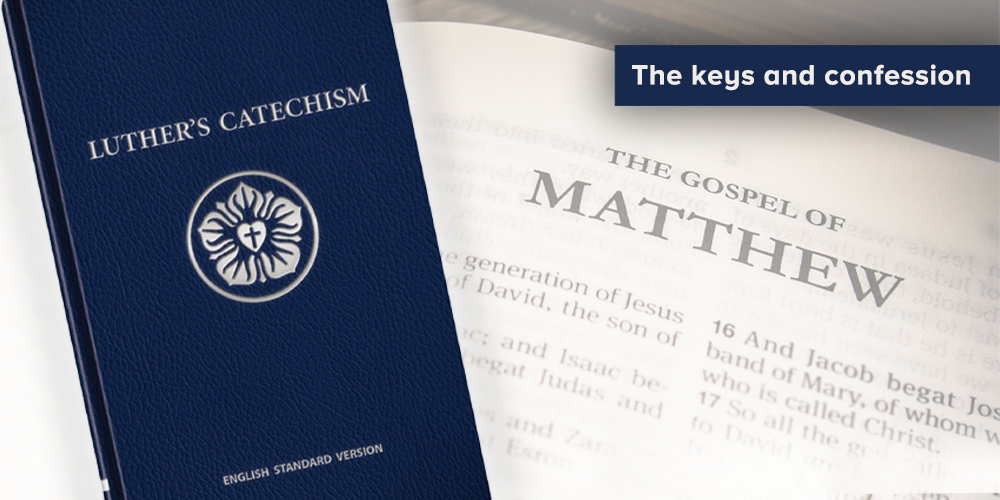 |
If the hymn “Amazing Grace” were written about Matthew, it would end, “I once was lost, but now I’m found. Was out but now I’m in.”
Matthew’s experience
The Jewish community treated tax collectors like Matthew as impenitent traitors and pagans. The people closed the synagogue doors to them—locking them out of fellowship with God and neighbor.
If the regular community excluded Matthew this way, how could he expect anything different from the increasingly popular rabbi in town? Jesus “saw a man named Matthew sitting at the tax collector’s booth. ‘Follow me,’ he told him, and Matthew got up and followed him. While Jesus was having dinner at Matthew’s house, many tax collectors and sinners came and ate with him and his disciples” (Matthew 9:9,10).
Look at Matthew now. Jesus and his disciples were sitting at his home table! Fellowship followed faith and forgiveness. Table fellowship with Jesus meant as much to Matthew as sight to a blind man or physical health to a paralytic.
More than that, Jesus pulled Matthew into his closest fellowship—the men to whom the Lord entrusted supernatural authority. “Jesus called his twelve disciples to him and gave them authority to drive out impure spirits and to heal every disease and sickness” (Matthew 10:1).
It would get better yet. Jesus gave Matthew and every one of his followers (not just the Twelve) the authority to make it possible for people to enjoy fellowship with God by opening heaven itself! Matthew alone records these words of Jesus: “I will give you the keys of the kingdom of heaven; whatever you bind on earth will be bound in heaven, and whatever you loose on earth will be loosed in heaven” (Matthew 16:19; see also Matthew 18:18). The catechism calls this the ministry of the keys.
Our opportunity
In Matthew chapter 16, Jesus gave the keys to the universal church—to all who confess that Jesus is “the Messiah, the Son of the living God” (v. 16). He promised “the gates of Hades will not overcome [the church]” (Matthew 16:18). That’s because the forgiveness of sins is the key that opens the door to heaven.
In Matthew chapter 18, Jesus describes how local churches use the keys. Patient correction begins privately. But if the sinner consistently rejects the loving rebuke that includes a widening circle of concerned brothers and sisters, only then would the congregation use the other key and “treat them as you would a pagan or a tax collector” (v. 17)—all in the hope of repentance and reconciliation.
Peter then asks Jesus about the limit for the individual use of the keys. Our forgiveness is to be limitless, just like our Father’s. With the parable of the unmerciful servant (Matthew 18:21-35), Jesus visualizes the Fifth Petition of the Lord’s Prayer (Matthew 6:12-15) in memorable fashion.
The goal of the keys is always reconciliation with God and neighbor through Jesus: forgiveness, faith, and fellowship. Matthew understood that. And he recorded Jesus’ words so you would see that Jesus has put these very keys in your hands.
One more thing Matthew makes clear: Reconciliation is an urgent matter. Are you on the outs with anyone? Whether you have sinned against someone (Matthew 5:23,24) or someone has sinned against you (Matthew 18:15), Jesus tells you, “Go!” In other words, it’s always your move.
This is the fourth article in a six-part series about catechism truths found in Matthew’s gospel.
Learn more at forwardinchrist.net/catechism.
Author: James Borgwardt
Volume 110, Number 10
Issue: October 2023
- Catechism truths from Matthew: Baptism
- Catechism truths from Matthew: The Lord’s Supper
- Catechism truths from Matthew: The keys and confession
- Catechism truths from Matthew: The Lord’s Prayer
- Catechism truths from Matthew: The Ten Commandments
- Catechism truths from Matthew: Apostles’ Creed







